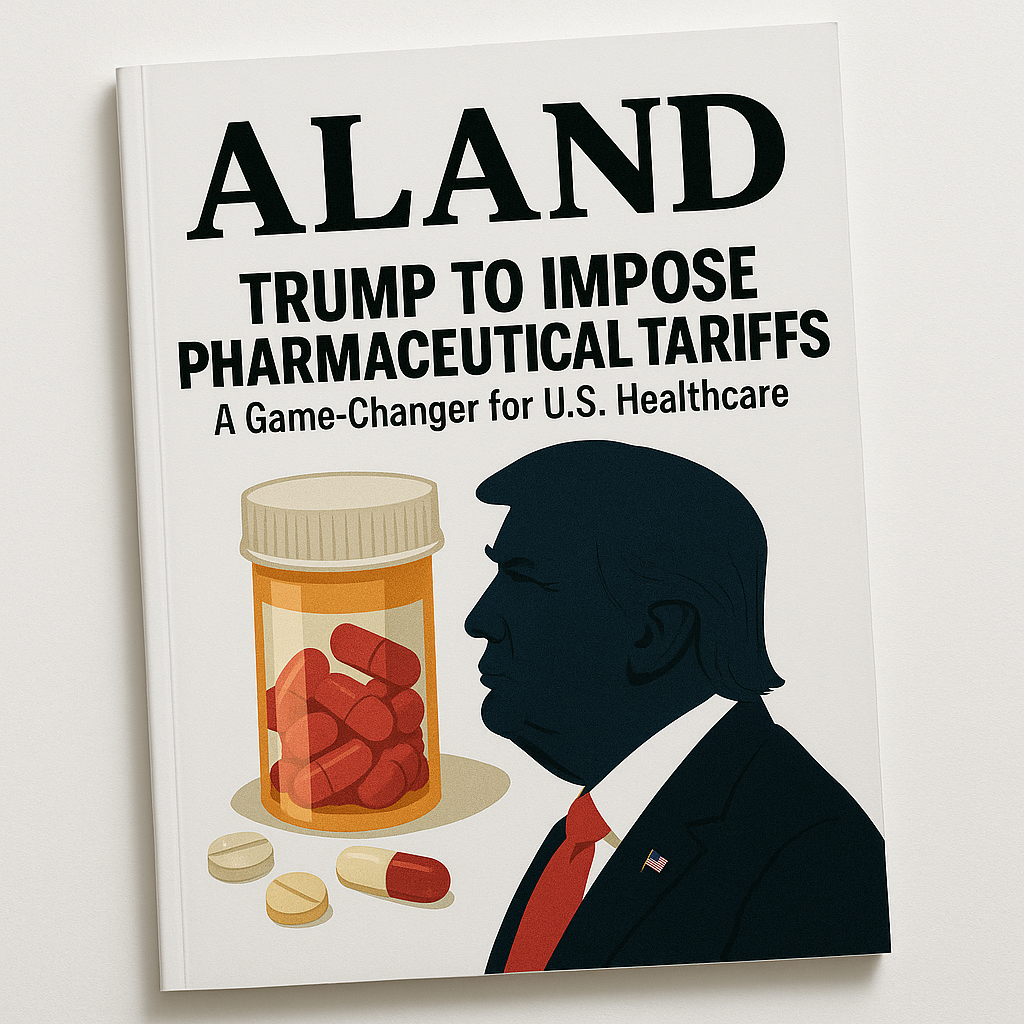Trump to Impose Pharmaceutical Tariffs: A Game-Changer for U.S. Healthcare
Published Date: 6th May, 2025
May 6, 2025 – Washington, D.C.
In a bold move to reshape America's pharmaceutical landscape, President Donald Trump announced plans to impose substantial tariffs on imported medications. Speaking at a National Republican Congressional Committee dinner, Trump declared, "We're going to be announcing very shortly a major tariff on pharmaceuticals," aiming to incentivize drug manufacturers to relocate operations back to the United States .
The Rationale Behind the Tariffs
The proposed tariffs are part of Trump's broader "America First" trade policy, which seeks to bolster domestic manufacturing and reduce reliance on foreign imports. By targeting pharmaceutical imports, the administration aims to address concerns over the offshoring of drug production, particularly to countries like China and India. Trump emphasized that these tariffs would encourage companies to establish manufacturing facilities within the U.S., thereby creating jobs and enhancing national security .
Potential Economic Impact
While the administration anticipates positive outcomes from this policy, experts warn of significant economic repercussions. The pharmaceutical industry, which heavily relies on global supply chains, could face increased production costs due to the tariffs. A report by Ernst & Young estimates that drug prices in the U.S. could rise by up to $51 billion annually, potentially leading to higher out-of-pocket expenses for consumers .
Industry Response
Pharmaceutical companies are closely monitoring the situation. Some, like Bristol Myers Squibb, have already announced plans to invest heavily in U.S. manufacturing. The company revealed intentions to invest $40 billion over the next five years to expand its research and manufacturing capabilities within the United States .
However, not all companies are prepared to make such significant investments. Pfizer's CEO, Albert Bourla, expressed concerns that the uncertainty surrounding the tariffs is hindering the company's ability to commit to large-scale investments in U.S. facilities .
Global Reactions
Internationally, the proposed tariffs have sparked apprehension. The United Kingdom, a major exporter of pharmaceuticals to the U.S., could see its £6.5 billion annual export market affected. Companies like GSK and AstraZeneca are actively lobbying for exemptions or delays in the implementation of these tariffs .
Looking Ahead
As the May 7 deadline for public comments approaches, the pharmaceutical industry and policymakers are bracing for the potential impact of these tariffs. While the administration remains steadfast in its commitment to reshoring drug manufacturing, the broader implications for healthcare costs and international trade relations remain to be seen.
For more updates on this developing story, stay tuned.
Date: 6th May, 2025

